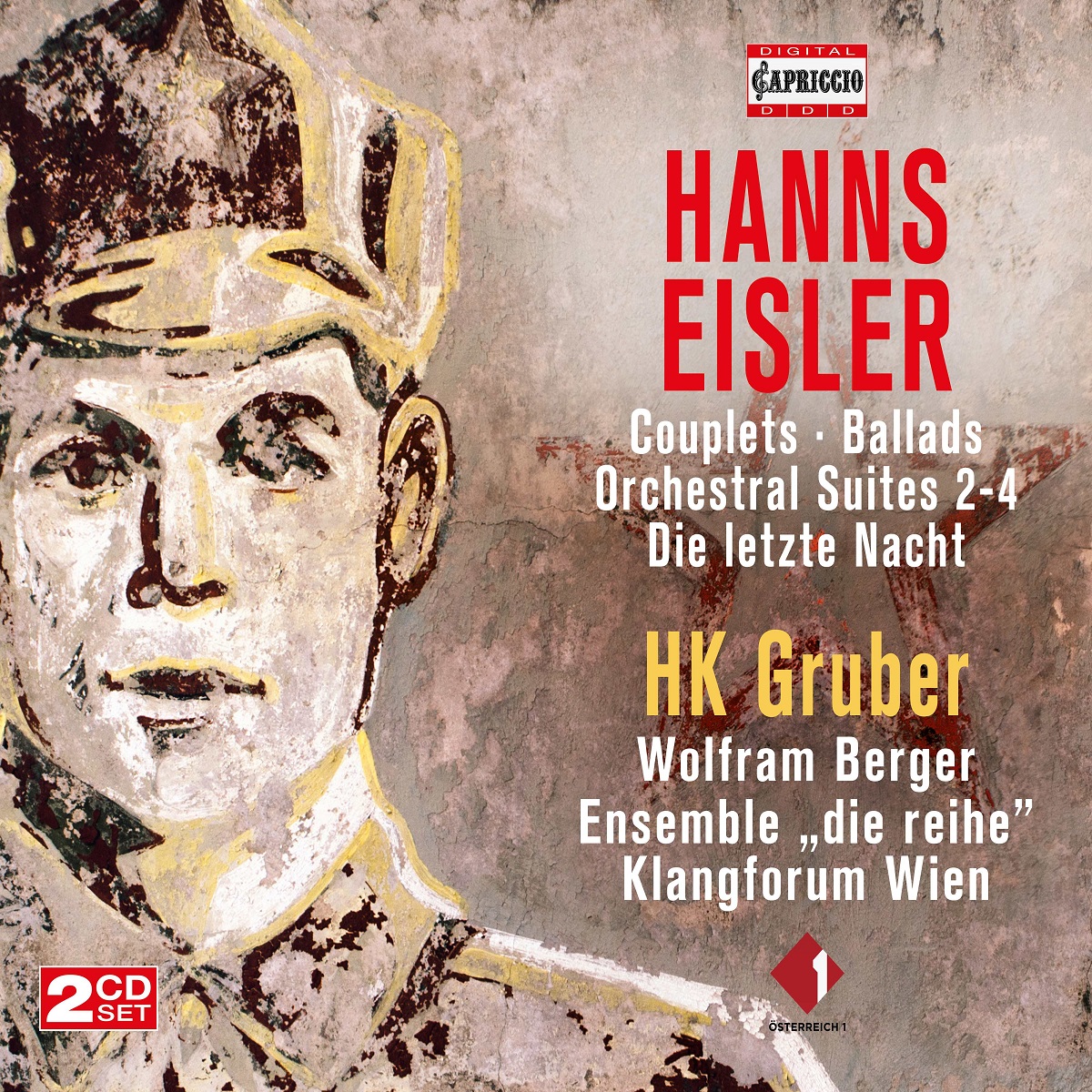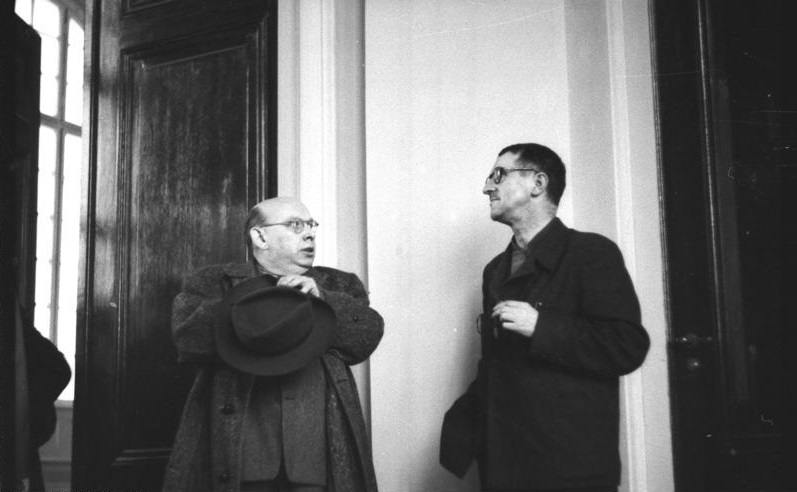Kevin Clarke
Operetta Research Center
22 January, 2022
At first glance, Hanns Eisler doesn’t have much to do with operetta. But if you look closer, the very first track on this newly released double disc is the “Ballade von der Krüppelgarde” (The Ballad of the Cripples’ Brigade), and the text author of that is a certain David Weber. Who is none other than Robert Gilbert, one of the most famous operetta lyricists of the early 1930s – who wrote the words to W. R. Heymann’s Tonfilmoperetten, but also for Erik Charell’s Im weißen Rössl. And, yes, he’s also the composer of “Was kann der Sigismund dafür, dass er so schön ist?“

The cover of “Hanns Eisler: Couplets, Ballads, Orchestral Suits, Die letzte Nacht”. (Photo: Capriccio)
There are more songs by David Weber on this album, e.g. the “Ballade vom Nigger Jim” (The Ballad of Negro Jim). They stand next to songs with words by Bertolt Brecht (“Das Lied vom SA-Mann”) and Kurt Tucholsky (“Die weinenden Hohenzollern”) and Julian Arendt. And they certainly hold their own in such company.
Gilbert Jr. – son of operetta composer Jean Gilbert (Die keusche Susanne) and best friends with a certain Fritz Löwe, who would go on to write My Fair Lady (which Gilbert translated into German) – was a left-leaning young man with sympathies for the communist movement, while at the same time working for the capitalist entertainment industry. It explains why he also worked – parallel – with Hanns Eisler and Ralph Benatzky, Heymann and many others.

Hanns Eisler (l.) together with Bertolt Brecht in 1950. (Photo: Das Bundesarchiv / Wiki Commons)
Hearing these songs performed here by HK Gruber is amazing. Because the chansonnier has that snaring type of character voice that draws you into the world of the songs immediately. The recordings were already made in the late 1990s in Vienna. Why Capriccio has decided to re-release them now, I have no idea. But I am very glad they did. Because they make for essential listening.
After the various songs on disc 1 you get stage music for a Johann Nestroy play (Höllenangst). And then, on disc 2, orchestral suits from the early 1930s: Niemandsland, Kühle Wampe, and Pesn’ o gerojach. And, as a world-premiere recording, the stage music to Karl Kraus’ Die letzten Tage der Menschheit, presented here under the title Die letzte Nacht (1929).
For these orchestral works HK Gruber conducts himself. And he does it exceedingly well.
It’s a great shame that no one has ever asked HK Gruber to sing other works by Gilbert – or any operetta. He’s an ideal interpreter for cranky roles once made famous by Karl Farkas, Max Hansen or even Gustaf Gründgens.
Today, HK Gruber is 79 years old. Whether the new director of Volksoper Wien plans to reach out to him isn’t known. But Mr. Gruber could easily sweep away the entire operetta competition at Volksoper, Baden bei Wien, Ischl… to name just a few institutions in Austria.
In short, this double disc is a must-have. And simply wonderful, from start to finish. (To read a review by Alan Lareau of the latest Robert Gilbert biography, click here.)
